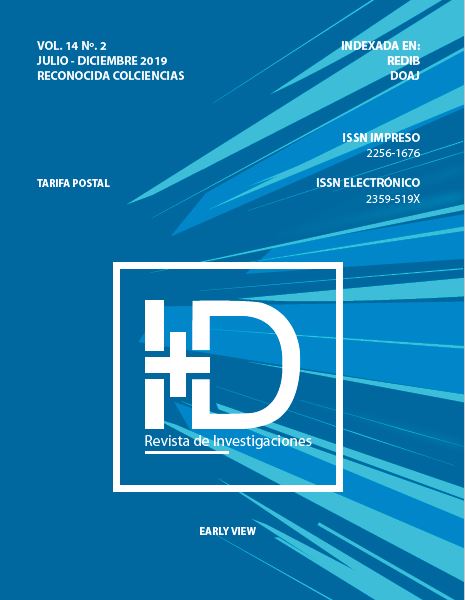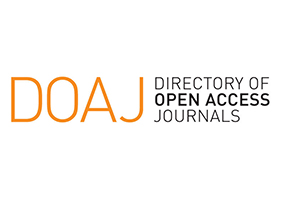Scientific skepticism in the construction of financial information: State of knowledge
DOI:
https://doi.org/10.33304/revinv.v14n2-2019001Keywords:
Code of ethics, skepticism, public Accountant., moral, ethics.Abstract
This document presents an empirical investigation about the philosophical point of view, in front of facts that attempt against professional ethical conduct and skepticism in the construction of financial information. The observation of the moral conduct and the principle of independence of the Public Accountant, as depositaries of the public trust, has been questioned throughout history; due to financial scandals and millionaire bankruptcies, in which these professionals have not fulfilled their duty to watch over the economic interests of those who have placed their trust in them, despite being governed by Codes of Ethics. This leads to the organizations of accountants, society, companies and educational institutions join forces in order to enhance the training that from the family has been acquiring the professional. This dilemma leads us to question the following question: How to face the threats that the changes of the globalized world and of business, imply about the Public Accountant's skepticism? about its ethical and independence principles, distorting and compromising its professional practice in the construction of the information.Downloads
References
Alcalá, R. R. (2005). El escepticismo antiguo: Pirrón de Elis y la indiferencia como terapia de la filosofía. Daimon Revista Internacional de Filosofía, (36), 33–52.
Diccionario filosófico. (1984). Pirrón de Elis. Retrieved from http://www.filosofia.org/enc/ros/pir.htm
Enciclopedia de Conceptos. (2018). “Ética.” Retrieved from https://concepto.de/etica/
Filosofía Griega. (2000). Sexto Empírico. Retrieved from http://www.cinicos.com/sexto.htm
Galán, J. P. (1999). Ética, profesión y medios: la apuesta por la libertad en el éxtasis de la comunicación. Universidad Iberoamericana.
Gutiérrez Rueda, C. (2003). El escepticismo filosófico antiguo y el problema de la justificacion epistemológica. Elementos: Ciencia y Cultura, 10(51), 43-51.
Hurtt, K., Eining, M., & Plumlee, D. (2003). Professional Skepticism: A Model with Implications for Research, Practice and Education. (No. Working paper). Wisconsin: University of Wisconsin. Retrieved from www.business.utah.edu
Larriguet, G. (2015). Una revisión crítica de Dudas filosóficas. Ensayos sobre escepticismo antiguo, moderno y contemporáneo. Diánoia, 60(75) 129-139.
Mansilla, H. (05 de 2004). El escepticismo clasico y moderno coo precursores de las teorias postmodernistas. Revista de filosofia, 22(47) 51-64.
Nelson, M. W. (2009). A model and literature review of professional skepticism in auditing. Auditing: A Journal of Practice & Theory, 28(2), 1–34.
Rubio, J. E. H., & Mojica, K. Y. S. (2017). La transdiciplinariedad de la ética en las ingenierías. I+ D REVISTA DE INVESTIGACIONES, 9(1), 70–81.
Serrano, S. E. G. (2015). La relación entre el habitar-ethos y la ética. Antropología educativa. I+ D REVISTA DE INVESTIGACIONES, 6(2), 6–18.
Verwey, I. G. F. (2009). The differences between auditors and forensic accountants with respect to their ability to identify effective additional procedures to mitigate identified fraud risks (No. (No. NRI09-23). Nyenrode Business Universiteit.). Retrieved from https://www.nyenrode.nl/research
Viloria, N. (2013). El escepticismo profesional: Estrategias de aula para los estudiantes de contaduría pública. Actualidad Contable Faces, 16(27). Retrieved from https://www.redalyc.org/html/257/25728957007/
Viloria, N. (2016). Estrategias de reforzamiento de escepticismo profesional para los contadores públicos en actividad de auditoría. , 19(33). Actualidad Contable Faces, 19(33), 112–134. Retrieved from https://www.redalyc.org/html/257/25746579007/
Zaá Méndez, J. R. (2013a). Pertinencia de la adopcion plena del codigo de Ética de la Federacion Iternacional de Contadores (IFAC) como instrumento regulador de la profesión contable. Valle de la Pascua, Estado guárico, Venezuela.
Zaá Méndez, J. R. (2013b). Amenazas y salvaguardas del principio de independencia en trabajos de atestiguamiento según el Marco de Referencia Normativo que regula la práctica profesional del Contador Público Venezolano. Retrieved on June 5, 2018
Zamitiz Gamboa, H. (1994). Aspectos histórico-conceptuales del escepticismo: una aproximación al estudio del escepticismo en la política. Revista Mexicana de Ciencias Políticas y Sociales, 39(157), 159–179.












